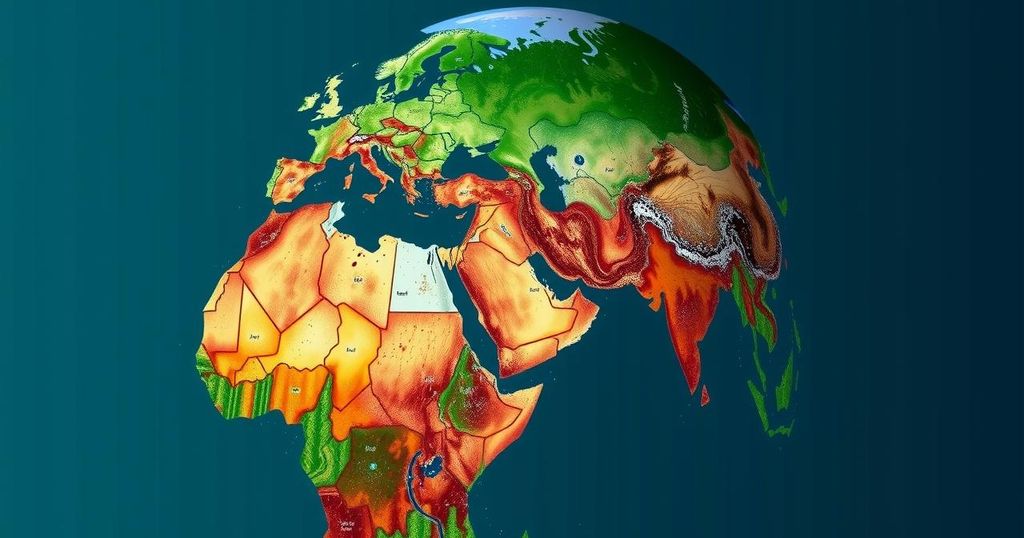Developing nations have criticized the newly approved $300 billion annual climate deal, dubbing it as insufficient. Indian and Sierra Leonean representatives expressed their disappointment, arguing it fails to meet the dire needs posed by climate change. The accord emerges from a lengthy negotiation process, yet many experts believe the amount should be much higher to adequately support developing countries in their climate efforts.
At a highly contentious conference in Baku, nearly 200 nations reached an agreement on a climate finance pact that has been met with significant disapproval from developing nations. These nations have described the $300 billion annual commitment from wealthier nations as vastly inadequate, with India’s delegate Chandni Raina labeling it a “paltry sum” that fails to address the severity of the climate crisis at hand. Sierra Leone’s Climate Minister Jiwoh Abdulai expressed disappointment at what he perceived as a lack of sincerity from developed countries, which include major historical polluters like the United States and members of the European Union.
The negotiations were arduous, following long-standing debates regarding the financial responsibilities of developed nations towards developing countries, who are disproportionately affected by climate change despite contributing the least to its causes. The final agreement reflects a modest increase from a previous commitment of $100 billion, but many developing nations had requested an amount far exceeding the final figure. UN Secretary-General Antonio Guterres indicated that a more ambitious outcome was hoped for, while UK Energy Secretary Ed Miliband described the agreement as a critical last-minute resolution.
The deal sets a tentative goal of $300 billion annually by 2035 to assist developing nations in transitioning to greener economies and enhancing disaster preparedness. However, this has been met with skepticism as many experts assert that the figure should be closer to $390 billion to adequately meet the needs of these nations. Developed countries have also suggested that emerging economies, such as China, should contribute more to climate finance, although these countries already engage in financing on their terms. Ultimately, the outcome of the conference signifies a troubling continuation of inadequate funding for vulnerable nations, leaving many advocates for climate justice deeply dissatisfied.
The recent climate negotiations in Baku symbolize a crucial moment in international climate action, particularly regarding financing commitments from developed nations. Developing countries have consistently requested enhanced support to address climate impacts, which they disproportionately experience despite being less responsible for greenhouse gas emissions. The historical context of these discussions underscores the ongoing struggle to reconcile the financial expectations of developing nations against the fiscal constraints faced by wealthier countries, particularly under changing political tides that may affect global climate cooperation. This latest agreement represents a pivotal, albeit contentious, outcome in the long-standing negotiations surrounding climate finance responsibilities.
The climate finance deal approved in Baku, while a step forward, has been criticized as insufficient by developing nations that perceive the $300 billion commitment as an inadequate response to the climate crisis. Multiple representatives from these nations have voiced concerns over the lack of ambition exhibited by wealthier countries. Ultimately, this agreement reflects the persistent challenges in achieving equitable climate financing, leaving many countries apprehensive about their ability to cope with the accelerating impacts of climate change.
Original Source: www.france24.com







